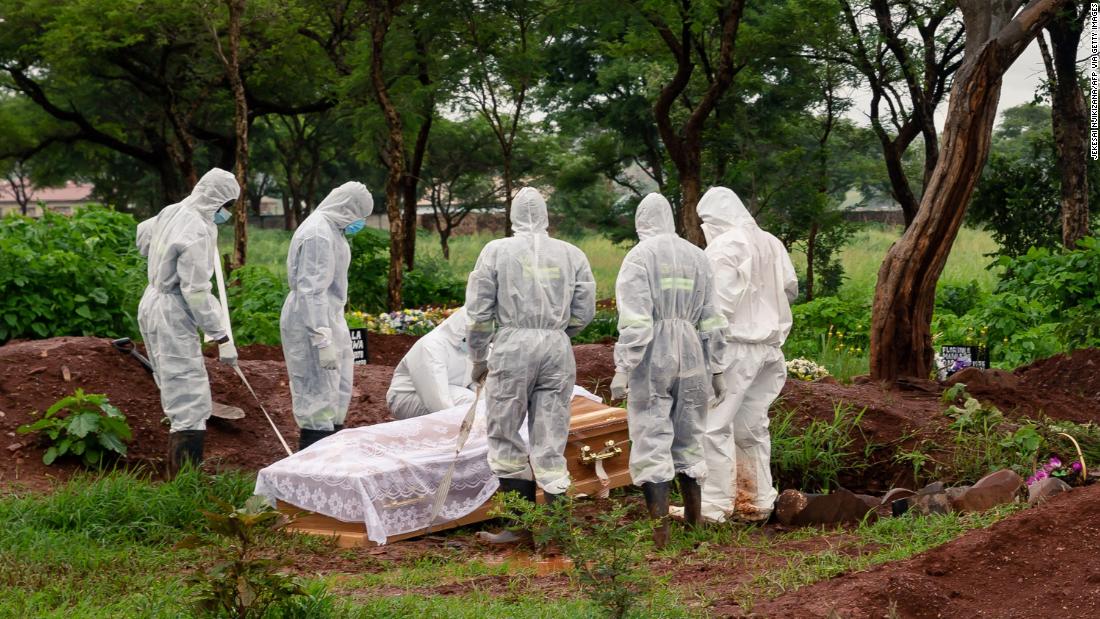New daily infections across the continent were approximately 30% higher during the second wave, according to the study published in The Lancet. Its authors say it is the first comprehensive analysis across the continent of the pandemic in Africa.
“These insights also reveal the need to improve testing capacity and reinvigorate public health campaigns, to reemphasize the importance of taking steps to find a perfect balance between controlling the spread of Covid-19 and sustaining economies and means of people’s livelihood, “he added in a statement.
However, Nkengasong told CNN that public health measures alone will not be enough to prevent further waves of the pandemic in Africa. “Without an urgent increase in vaccines, we will definitely see the third wave, which has already started in some African countries,” he said.
“Vaccine protectionism will definitely make the situation worse and … it will be detrimental to global efforts to win the battle against Covid 19,” he added.
African countries rely largely on the COVAX scheme, a global vaccine sharing initiative that offers discounted or free doses to low-income countries. The offer is very limited, however. According to the World Health Organization, about 90 million doses will be supplied to Africa in the first half of this year. This is enough to immunize only 3% of the continent’s population. As more vaccines become available, the goal is to vaccinate at least 20% by the end of the year, the WHO said.
Several countries hit very hard
Of the nearly 3 million cases of Covid-19 and more than 65,000 deaths reported in Africa between mid-February 2020 and the end of the year, more than 82% were reported in just nine countries. South Africa was the hardest hit, with more than 38% of all African cases reported there. Morocco saw almost 16% of all cases, while Tunisia, Egypt and Ethiopia reported about 5% of the total cases each.
Cape Verde, South Africa and Libya were the three countries that reported the highest cumulative incidence rates, while 18 of the 55 states reported a higher lethality rate than the global average, meaning that a higher proportion of those officially diagnosed with Covid-19 they died.
The study authors said that early intervention in many African countries kept the first wave of the pandemic relatively in check.
Senegal, Rwanda, Mauritius and Liberia started planning their response as soon as virus alerts were sent internationally and began screening and quarantining travelers at the airport. Ghana and Nigeria have banned travel between cities and implemented curfews.
Mubarak added that many African countries also focused on expanding testing and tracking contacts early in the pandemic. Senegal built an infrastructure that allowed coronavirus test results to be generated within 24 hours. Rwanda and Sierra Leone have reused their HIV and Ebola equipment for coronavirus screening, testing and quarantine. South Africa, Cameroon, Mauritania, Ghana, Rwanda, Senegal and parts of Nigeria have created large-scale door-to-door community campaigns to test, treat and isolate potential Covid patients.
Looking at the 50 states for which data on public health and social measures were available, the researchers found that 36 put severe restrictions in place on average 15 days before reporting their first case. The other 14 countries implemented them on average just nine days after their first coronavirus case – which is still much earlier than many other countries around the world.
The vast majority of countries had five or more measures in place, including international travel controls, closing schools and banning public events and mass meetings.
However, the researchers found that while the second wave of the epidemic was more serious, it led to less stringent and fewer public health measures. They said that to prevent further waves of the coronavirus pandemic from getting any worse, African leaders need to redouble public health measures and work to improve their testing capabilities.
CNN’s Stephanie Busari and Nimi Princewill contributed reports.
